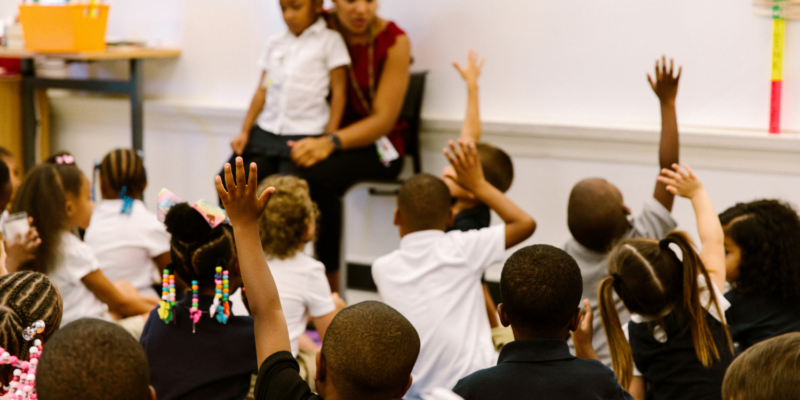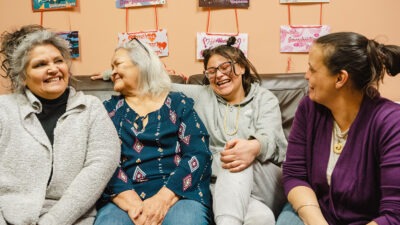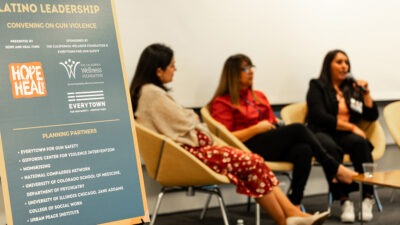We are investing in the Grand Rapids, Michigan community for a generation to ensure that every child thrives. We know that children live in families, and for children to thrive, their families have to be economically stable in order to support them.
For that reason, we invest in programs to support economic equity in Grand Rapids. To do so, we invest in three primary areas, all with a lens toward racial equity – workforce development, removing barriers to employment, and entrepreneurial support.
The COVID-19 pandemic has had an unprecedented impact on this work, with job losses, health concerns, lost revenue, staffing shortages, and business closures.
At the lowest point in the pandemic, the Grand Rapids metropolitan area saw a loss of one in every five jobs. The unemployment rate for the City of Grand Rapids rose from 4% in 2019 to just over 10% in 2020. In each of those years, the unemployment rate for our communities of color was significantly higher.
Jobs have started to return, but the return has not been equal across all industry sectors. For example, the leisure/hospitality industry, one of the hardest-hit sectors, has also been the slowest to recover. Additionally, we know that these jobs are often disproportionately held by people of color and are lower-wage positions.
Recent research shows that people of color in the city, especially Black residents, don’t receive the same opportunities or advantages as their white counterparts. In fact, although the city is almost 66% white, white people hold over 80% of jobs across all workforce sectors. This demonstrates the racial disparity at the center of Grand Rapids’ inequitable economic growth.
At this moment, we have an opportunity to think differently about creating greater economic opportunities for more Michigan residents in Grand Rapids and beyond, with a continued focus on racial equity, holistic support, barrier removal and leveraging incoming federal dollars.
Michigan can realize an annual $92 billion gain in economic output by 2050 if we eliminate disparities in health, education, incarceration and employment.
If we can better support our workforce, we have the potential to improve outcomes for those workers and their families and also for our companies and our economy.
By helping unemployed people in Grand Rapids gain the skills they need to fill open jobs, we could have 5,000 more businesses growing and $350 million in additional economic output.
By helping Grand Rapids-based companies better utilize talent, we can reduce turnover and increase productivity and innovation, resulting in $330 million in savings from a 33% reduction in turnover.
And by better supporting aspiring entrepreneurs in Grand Rapids, we can increase regional growth, leading to 1,600 new businesses that will create 19,200 jobs.
The work we do here in Michigan sets the stage for our entire global portfolio of grantmaking. No single foundation — or even all of philanthropy combined — can tackle these systemic problems. The path forward is one that combines racial healing and systems transformation. It requires us to work together to heal from centuries of racism and its present-day consequences.








Comments